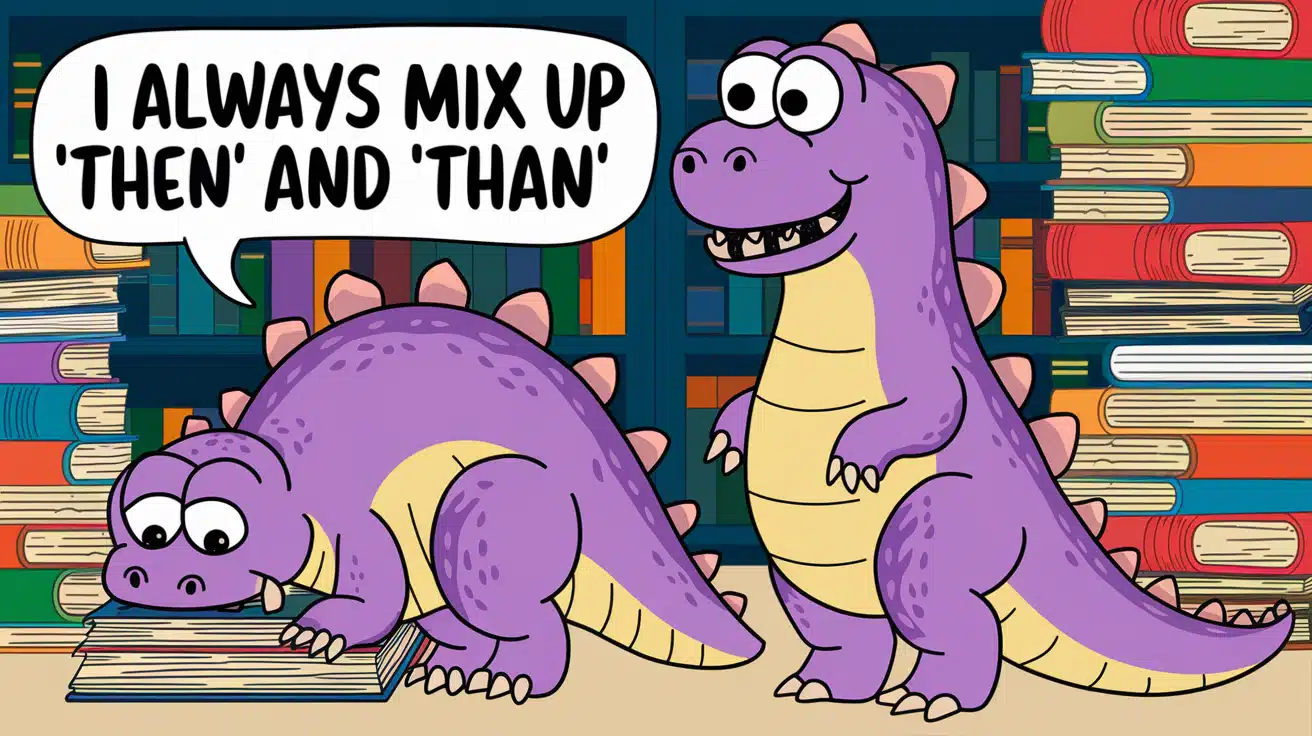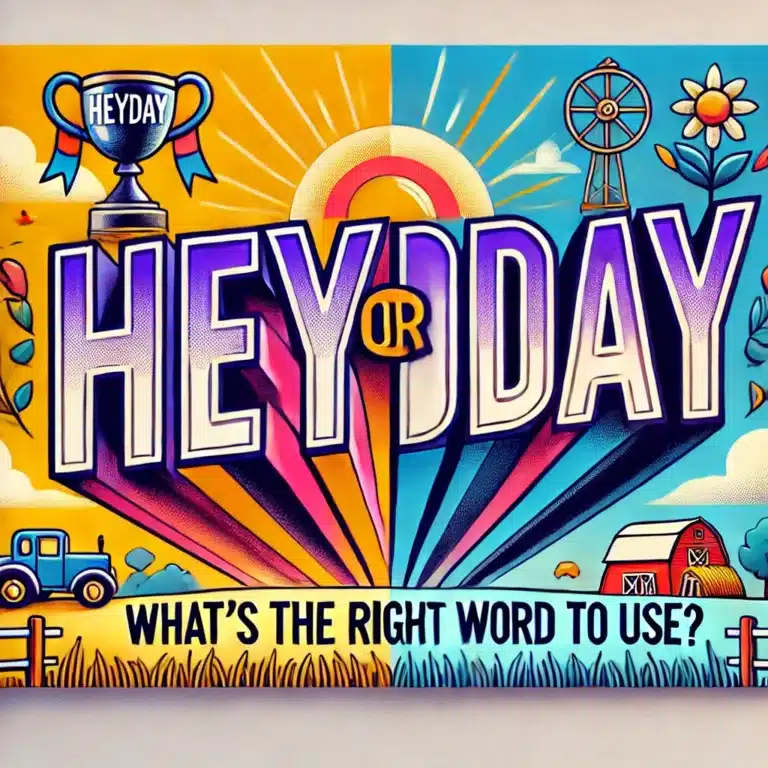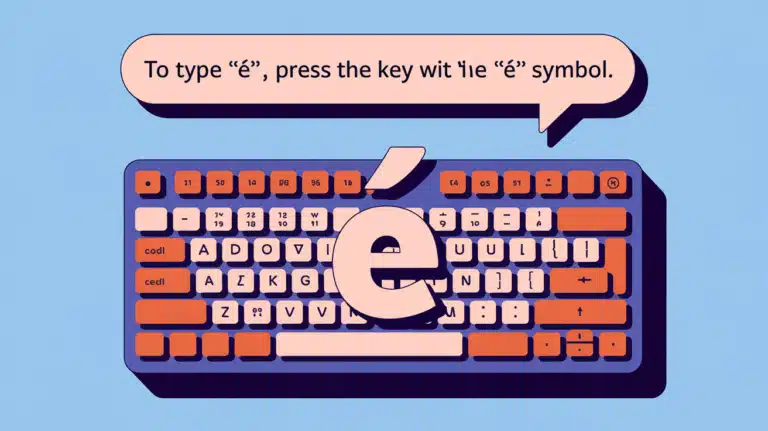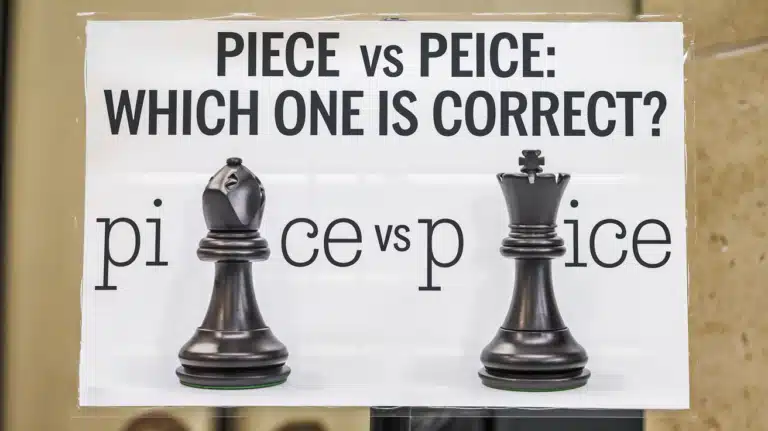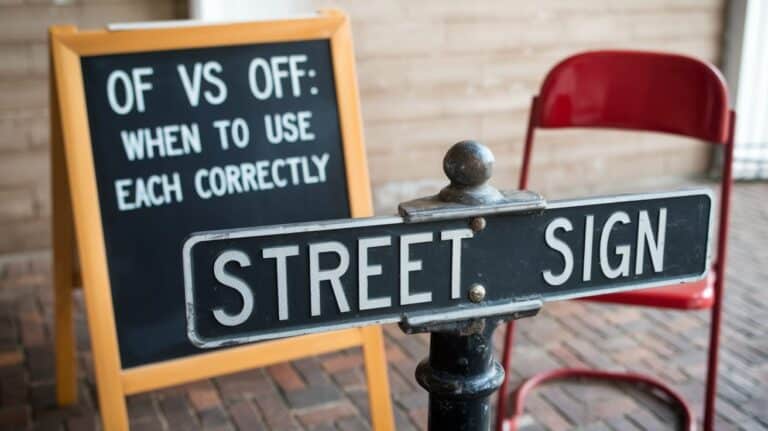Than vs Then: Avoiding Common Mistakes in English
When it comes to English grammar, two of the most commonly confused words are “than” and “then.” While they may sound similar, their meanings and uses are vastly different. Misusing these words can lead to confusion in everyday language and even undermine your writing. This grammar guide will help you master the difference between than and then so you can avoid errors and write with confidence.
Why Are “Than” and “Then” Often Confused?
Pronunciation Similarities
The words “than” and “then” share similar sounds, particularly when spoken quickly in casual conversations. This similarity can lead to mistakes in both spoken and written English.
Contextual Misinterpretation
The confusion often arises because their meanings overlap in certain contexts, especially when discussing comparisons or sequences. For example:
- “I’d rather go now than wait.”
- “First, we’ll eat dinner, then we’ll go out.”
Without a clear understanding of their definitions, these words can seem interchangeable.
What Does “Than” Mean and When Should You Use It?
Definition and Function
“Than” is a comparison word used to contrast two elements. It often follows adjectives, adverbs, or verbs that imply a comparison.
Read More About : How to Type É on Your Keyboard – Easy Guide for PC, Mac, and Mobile
Examples in Context
Here are a few examples where “than” is correctly used:
- “She is taller than her brother.”
- “I’d rather have tea than coffee.”
- “This car is faster than that one.”
Synonyms for “Than”
Although “than” has no direct synonyms, other phrases can imply comparison:
- Instead of
- Compared to
- Rather than
What Does “Then” Mean and When Should You Use It?
Definition and Function
“Then” is used to indicate time or sequence. It serves as a transition word to show what happens next.
Examples in Context
To clarify, here are some correct uses of “then”:
- “We’ll finish the project, then go for lunch.”
- “First, mix the ingredients, then bake at 350°F.”
- “Back then, things were simpler.”
Synonyms for “Then”
Similar words include:
- Next
- Afterwards
- At that time
Than vs Then: Key Differences and Applications
Comparative vs Sequential Use
To better understand the distinction, let’s break it down:
| Aspect | Than | Then |
|---|---|---|
| Function | Used for comparisons | Indicates time or sequence |
| Examples | “He’s stronger than me.” | “We went shopping, then had lunch.” |
| Mnemonic | “Than” = Comparisons | “Then” = Timeline or Next Steps |
Visual Table of Differences
Use this handy table to avoid confusion:
| Use Case | Correct Word |
|---|---|
| Comparing two things | Than |
| Referring to time | Then |
| Sequential actions | Then |
| Relational contrast | Than |
Common Mistakes with “Than” and “Then”
Frequent Errors in Writing
Some examples of mistakes and their corrections:
- Incorrect: “I’d rather go now then later.”
- Correct: “I’d rather go now than later.”
- Incorrect: “First we’ll shop, than we’ll eat.”
- Correct: “First we’ll shop, then we’ll eat.”
Errors in Speech
Mispronunciation also leads to errors. For instance, people often drop enunciation in phrases like:
- “It’s easier than you think.” (May sound like “then you think.”)
Phrases Commonly Confused: Other Than vs Other Then
Other Than
“Other than” is used to exclude or compare:
- “Other than the rain, the day was perfect.”
- “He has no plans other than finishing his project.”
Other Then
This phrase is rarely correct but could occur in specific contexts:
- “Other then, we wouldn’t have considered it.”
Phrases Commonly Confused: More Than vs More Then
More Than
“More than” refers to quantity or comparison:
- “She spends more than $100 a week on coffee.”
- “This book is more than just a story.”
More Then
Incorrect usage unless discussing sequences:
- “More then, we’ll focus on improving results.”
Phrases Commonly Confused: Rather Than vs Rather Then
Rather Than
Used to indicate preference:
- “I prefer walking rather than driving.”
- “Rather than arguing, let’s discuss calmly.”
Rather Then
Incorrect in almost all contexts.
Practical Tips for Remembering “Than” vs “Then”
Mnemonics and Tricks
- “Than” for comparisons: Remember the “A” in “than” and “comparison.”
- “Then” for sequences: The “E” in “then” matches “sequence.”
Grammar Check Tools
Use tools like Grammarly or Hemingway Editor to catch errors in real time.
Practice Exercises
Try filling in the blanks:
- “I’d rather read a book ___ watch TV.”
- “First, we’ll have dinner, ___ we’ll watch a movie.”
The Origins of “Than” and “Then”
Etymology of “Than”
Derived from Old English “thonne,” meaning “when” or “then,” its usage evolved into a comparative term.
Etymology of “Then”
Also from Old English “thonne,” but retained its temporal meaning over time.
Conclusion
Conclusion
Understanding the distinction between than and then is essential for clear and accurate communication in English grammar. While “than” is used for comparisons, “then” relates to time or sequence. Misusing these words can lead to confusion, but by remembering their unique functions and practicing their correct usage, you can avoid common mistakes and improve your writing. Use tools, mnemonics, and practice exercises to solidify your understanding. Whether you’re comparing two ideas or describing a sequence of events, choosing the right word ensures your message is both precise and professional. Master this small but impactful detail to elevate your grammar skills!
Frequently Asked Questions (FAQs)
Can “than” ever replace “then”?
No, they serve entirely different functions in English grammar.
Are “then” and “than” interchangeable in casual speech?
While pronunciation may blur the lines, their written meanings remain distinct.
What are the most common phrases where people confuse “than” and “then”?
Examples include: “Other than/then,” “More than/then,” and “Rather than/then.”
Does pronunciation differ between American and British English?
Both dialects pronounce them similarly, but context clarifies their meaning.
By mastering these concepts, you’ll confidently navigate the tricky terrain of English grammar and avoid word confusion!

